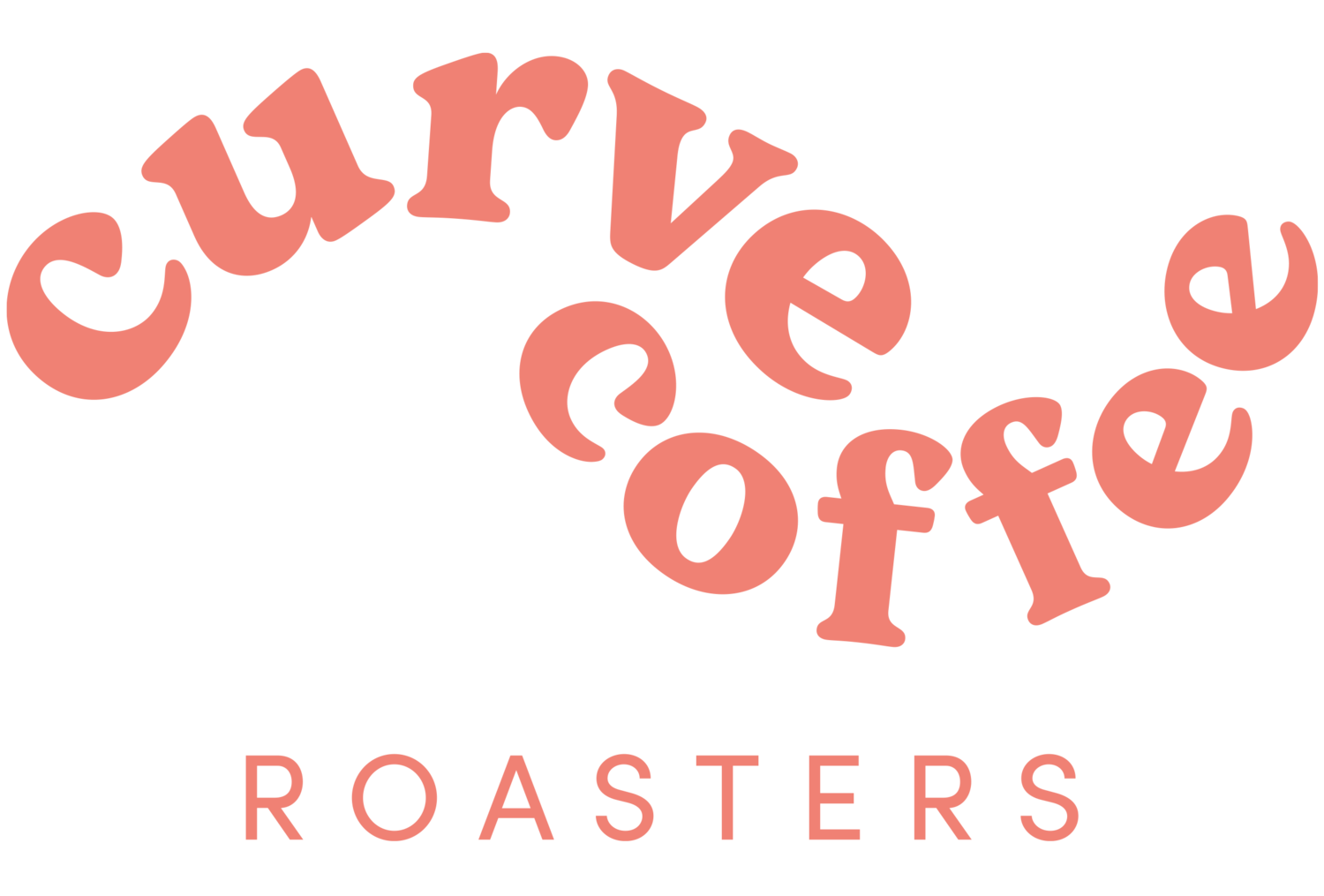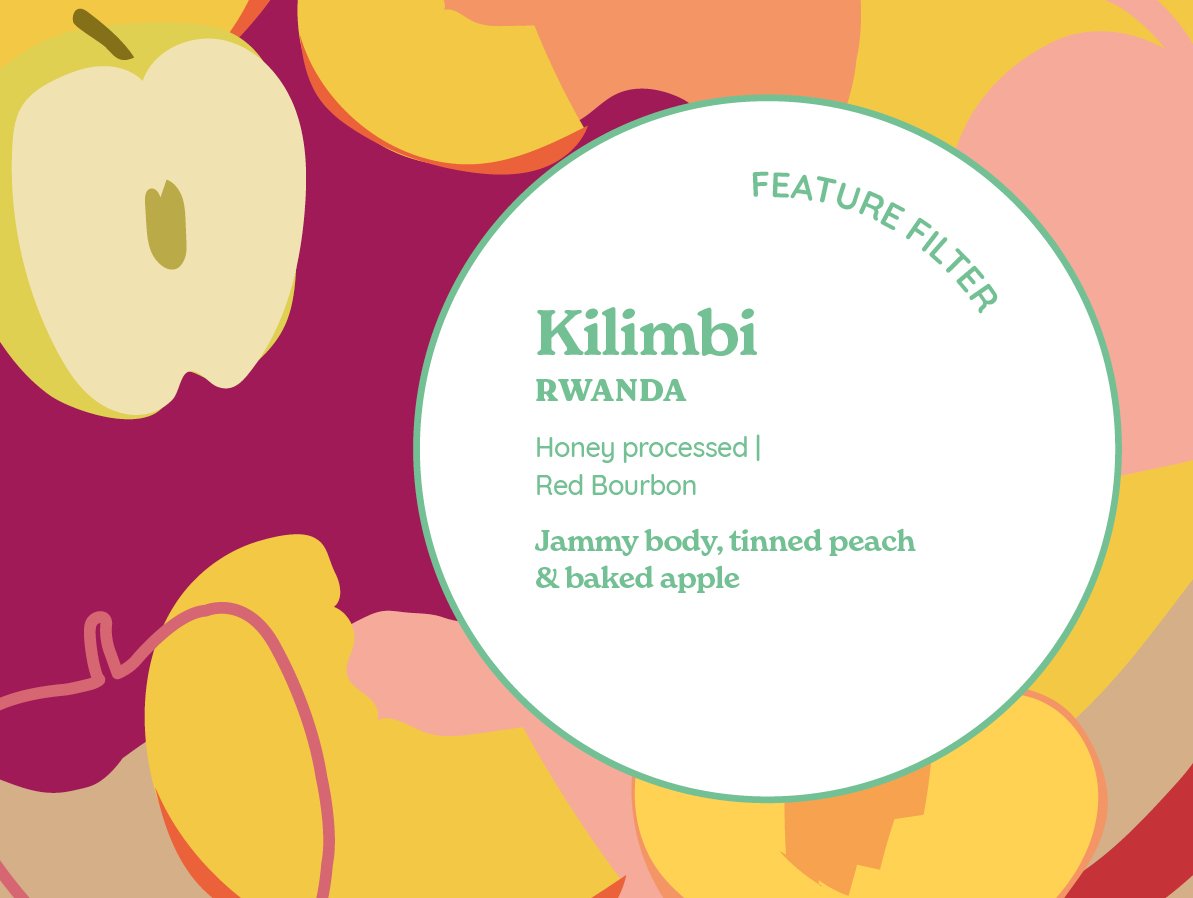Feature Filter: Kilimbi | Rwanda
Key Origin Info:
Producer: small-holder growers from the Nyamasheke district
Processed at: Kilimbi washing station
Region: Nyamasheke
Altitude: 1600-1650 masl
Variety: Red Bourbon
Process: Honey - de-pulped & dried on raised beds
Exporter: Muraho Traing Co | Importer: Raw Material
Cup profile: Jammy & refined, tinned peach & baked apple
Drying beds at Kilimbi station.
About Kilimbi & Muraho Trading Co:
Coffee for this lot was grown by small-holder farmers partnering with Kilimbi washing station in the Nyamasheke district, nearby Lake Kivu. Kilimbi, where the coffee is processed, is owned and managed by Muraho Trading Company. Run by two brothers with strong roots in the community. Muraho is a young innovative coffee company with a mission to showcase exceptional quality of Rwandan coffee whilst having a positive impact in their partnering farmer families.
Kilimbi is one of six washing stations owned and run by Muraho. Established in 2016, Kilimbi was the first station that Muraho built and it is the birthplace of the company. It is now managed by Radjab Mvuyekure and it has an estimated annual production of approximately 300-350 MT, which is produced each harvest into different volumes of honey, washed, and naturally processed coffees.. Kilimbi along with Gisheke are the only stations that get some coffee cherries delivered by boat from farmers through Lake Kivu.
Since its inception is 2016, Kilimbi has established its firm place within the Rwandan specialty coffee industry. Alongside its exquisite traditional washed lots, Kilimbi and Rugali CWS, were some of the first stations in Rwanda’s history to legally produce and export natural and honey processed coffee.
Harvest & processing:
Details provided by Raw Material
All cherry is hand-sorted before a pre-pulp float, underripe or damaged cherry is removed, along with any foreign objects. Cherry is then floated in pre-pulping tanks removing any floaters and later pulped. Next, coffee is fermented in dedicated concrete fermentation tanks for an average of 12 hours. During this time, the fermented parchment is agitated several times through the day by way of ceremonial foot-stomping.
After fermentation, coffee is released into a large serpentine grading channel. This process also separates parchment into different density grades. During the washing process, parchment is continuously agitated to encourage lower density parchment to float and to clean any residual mucilage off the parchment. Once the parchment is separated into grades, it is given a final post-wash rinse. At this point, coffee is taken to a pre-drying area where the parchment is hand-sorted removing any insect-damaged, discoloured or chipped coffee. The parchment is laid out to dry and turned on a regular basis throughout the day for 30 days.”
This is our first year of purchasing coffees from Muraho & Kilimbi through our importing partner Raw Material and we are very excited to add this coffee to our lineup!
About Raw Material - our importing partner:
Raw Material are a community interest company green coffee importer operating in the UK, EU and Australia. The work of Raw Material is centred around the vision of “speciality coffee as a solution”. A solution to sustainably improve the livelihoods of the many small-holder producers who have been historically marginalised and not receiving adequate value for their produce and contribution in the supply stream.
As RM explain:
Often the price farmers receive is lower than their cost of production. This situation leads to cycles of debt and disadvantage that compounds over generations.
The choices of the specialty coffee industry have an outsized ability to influence positive outcomes for producers and the wider environment. The value of the specialty coffee market continues to accelerate with a projected compound annual growth rate of 11-12% across the next 5 years. Total market value was estimated to be 35 billion USD in 2018 and is expected to grow to over 80 billion USD by 2025.
This is an exciting opportunity for development through trade. This is one of the few crises in the world for which the solution is direct and self-sustaining: with the appropriate investments and continued effort, the growing demand for high-quality coffee can be fulfilled by historically marginalised groups to great long-term effect.
To change the world, we need a powerful strategy. This requires that we make tough choices not just about what we will do but also what we will not do. We don’t search for the best coffee. We search for the right communities and work with them to build systems to produce high-quality coffee and connect to a stable marketplace. When the solution is well designed and community-led, results can be achieved very quickly.
Raw Material currently focus on working with producers in Colombia, Mexico, Rwanda & Timor Leste and they are our supply partner for Mexico and now also Rwanda.
You can find out more about their vision, impact and methods here.



